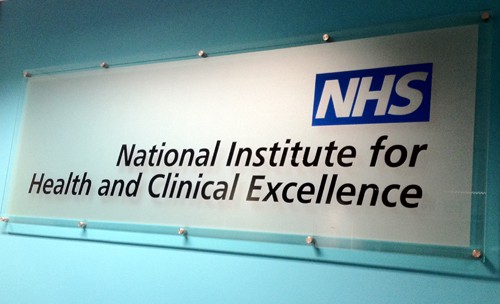
Draft guidance from NICE has found that Roche’s Tecentriq shouldn’t be recommended for routine use in patients with triple-negative breast cancer (TNBC), an aggressive form of the disease with few treatment options.
PD-L1 inhibitor Tecentriq (atezolizumab) was approved in Europe for TNBC patients whose tumours express PD-L1 at 1% or more last month, and is the first cancer immunotherapy to show activity in this form of breast cancer.
NICE’s draft guidance says however that use of Tecentriq in this setting “is not cost effective, even when it is considered to be a life-extending treatment at the end of life”, and calls for Roche to take steps to make sure the drug is affordable.
It also says Tecentriq can’t be considered for inclusion in the Cancer Drugs Fund (CDF), an alternative source of funding for cancer drugs in England that can kick in while further evidence of efficacy is sought.
That is because Tecentriq “does not have the potential to be cost effective at the current price, and there is no clear evidence that further trial data would resolve the uncertainties”. The guidance notes Tecentriq’s list price is £7,617.38 per 28-day treatment cycle.
TNBC tumours lack oestrogen, progesterone or HER2 receptors so it isn’t possible to use drugs that target them, reducing treatment options to surgery, radiotherapy and chemotherapy.
Tecentriq has been approved by the EMA for use in patients ineligible for surgery alongside Celgene’s Abraxane (nab-paclitaxel), and NICE estimates that around 600 of the 2,000 women diagnosed with TNBC in England would be eligible for treatment with the regimen if an access deal can be agreed.
One of NICE’s concerns was that there was no direct comparison between weekly taxanes such as paclitaxel and docetaxel, currently the standard NHS therapy.
Tecentriq’s approval is based on the phase 3 IMpassion130 study, which showed only modest improvements in progression-free survival (PFS) in all TNBC patients, but achieved a significant 10 month improvement in overall survival in the PD-L1 positive subgroup.
Baroness Delyth Morgan, chief executive at Breast Cancer Now said it was “extremely disappointing that there hasn’t been a way to make atezolizumab with nab-paclitaxel available, especially as the Early Access to Medicines Scheme which had made it temporarily available is no longer an option for new patients.”
She added: “Having raised the hopes of a patient group with very few targeted treatment options to rely on, it is completely unacceptable that Roche, NICE and NHS England have been unable to find a long-term solution to make it available to all that could benefit.”
So far Tecentriq’s rivals in the checkpoint inhibitor category – including Merck & Co/MSD’s Keytruda (pembrolizumab) – have failed to match its results in TNBC, making it the only immunotherapy option available for the time being. Keytruda has however shown promise when used before surgery in women with TNBC, and a NICE decision on that is expected in 2020.
Analysts have suggested the new indication could be worth between $500m and $1bn in additional revenues.
“I know that today’s announcement will be disappointing for people with this type of breast cancer as well as for their families and carers,” said Meindert Boysen, director of the Centre for Health Technology Evaluation at NICE.
“We are committed to working with the company to try to resolve the issues identified by the committee.”
In response to the NICE rejection, Lesley Hugo, lead of Roche’s Breast Cancer Franchise, said: “Triple-negative breast cancer is an aggressive form of the disease with a poor prognosis and limited treatment options. While it’s disappointing that the ACD is negative, it’s not the end of the story.”
“We will now have an opportunity to respond to NICE and continue to explore all potential funding options to work towards a positive Final Appraisal Document (FAD). Our goal is to ensure that Tecentriq is available to all appropriate patients with breast cancer who need it,” she added.




